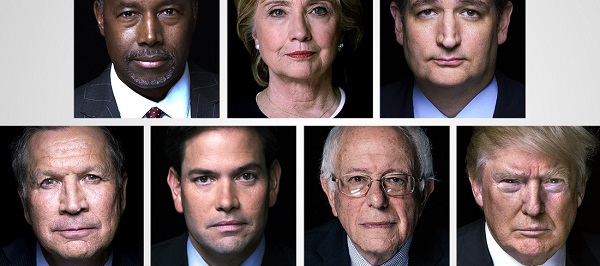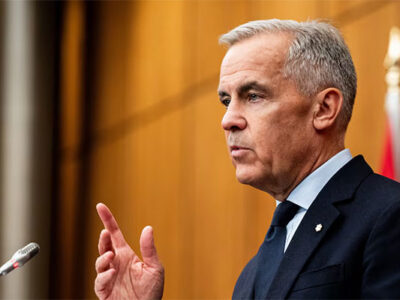We are in the middle of a long-term global transition away from fossil fuels and toward more efficient, renewable-based energy systems. This shift will deliver many benefits, including jobs, reduced air pollution, lower greenhouse gas emissions and less exposure to the volatility and risks of extracting, storing and transporting fossil fuels. It also will offer individuals, households and communities more local control over their energy systems.
The next U.S. president will have a significant impact on how the United States positions itself for this transition.
Renewable energy is growing rapidly, and is triggering far-reaching social and institutional changes in how energy is used and managed in the electric grid, in buildings and in transportation. Two types of policies will determine how quickly the United States shifts from fossil fuels to renewable-based energy systems: first, measures that support energy efficiency and renewable energy, and second, measures that reduce support for and reliance on fossil fuels.
There is a sharp divergence between the current Republican and Democratic presidential candidates’ positions on how to manage the dramatic changes that are taking place in our energy system and prepare for the future.
The Republican candidates
Most of the leading Republican candidates deny that a link exists between fossil fuel energy use and climate change; strongly support fossil fuels; and oppose providing incentives for renewable energy deployment.
Donald Trump has repeatedly stated that he does not believe in climate change, which he calls a hoax. Trump has made few substantive comments about energy policy beyond asserting that wind turbines kill lots of birds. He sued unsuccessfully to block construction of offshore wind turbines near one of his golf resorts in Scotland, arguing the turbines were ugly and would ruin the view and reduce tourism.
Senator Ted Cruz has called climate change a “pseudo-scientific theory.“ Cruz advocates strongly for an “all-of-the-above” energy strategy, is calling for an end to all energy subsidies, and criticizes the Obama administration for waging a “war” on coal, oil and natural gas. Although he represents Texas, the state with the most wind generation capacity in the country, Cruz does not directly acknowledge opportunities offered by a rapidly accelerating transition toward more renewable based energy systems.
Senator Marco Rubio has said that he believes that climate change is occurring, but not that it is caused by human activity. Rubio released a detailed energy plan that focuses on achieving energy independence and reducing U.S. reliance on Middle East oil by promoting energy efficiency and domestic fossil fuel production. Rubio wants to deregulate oil and gas drilling; reduce federal regulation of hydraulic fracturing (fracking) for oil and gas; open up new areas for offshore oil and gas drilling; and expedite natural gas exports.
Both Cruz and Rubio have voted against extending production tax credits for wind energy generation, providing support for rooftop solar installations, and setting a national goal of generating 25 percent of U.S. electricity from renewable fuels by 2025.
In contrast to other Republican candidates, John Kasich has said that he believes climate change is happening and is concerned about it. But Kasich, whose grandfather was a coal miner, does not support curbing use of fossil fuel, although he has promoted carbon capture and storage as a way to reduce emissions from coal-burning power plants.
His energy plan calls low-cost, reliable energy “the backbone of America’s economy” and supports “more energy production from a broad base of sources,” including fossil fuels, nuclear power and renewables, along with energy efficiency and conservation. His specific energy proposals, however, focus on fossil fuels. Kasich pledges to increase oil and gas production on federal lands, approve the Keystone XL pipeline, scrap the Clean Power Plan to limit carbon emissions from power plants and end an existing ban on U.S. oil exports.
Kasich has sent mixed signals on renewable energy incentives. As governor of Ohio, he signed a bill in 2014 that placed a two-year freeze on the state’s mandate for utilities to generate an increasing share of their power from renewable sources. Critics argued that the renewable energy standard was driving up energy prices and making the state less competitive. Recently, however, Kasich has warned Ohio lawmakers not to gut the renewable energy requirements, and pointed out that if the legislature cannot come up with an acceptable compromise version, the original standards will be restored in 2017.
The Democratic candidates
Both Hillary Clinton and Bernie Sanders contend that it is urgent for the United States to accelerate its transition away from fossil fuels to clean, sustainable energy. Both candidates say that doing so will create new jobs and help mitigate the impacts of global climate change.
Clinton has set two broad goals for expanding renewable energy. First, she has pledged to install 50 million solar panels by the end of her first term, which would represent roughly a seven-fold increase. However, solar energy is already growing rapidly – the U.S. solar market grew by 17 percent in 2015 – so it is possible that this increase might happen even if Clinton’s plan were not enacted. Second, Clinton pledges that within 10 years of her taking office, the United States will generate enough renewable energy to power every home in the country.
Clinton emphasizes the importance of bringing the benefits of energy efficiency and renewable energy to low-income communities, and she also has released a plan to modernize North American infrastructure that includes investments in hydropower and modernization of the electric grid. In her campaign launch speech, Clinton pledged to increase fees and royalties on fossil fuel production and use the revenues to help support a clean energy transition. She also supports production tax credits for wind and solar power.
Among all of the major candidates, Bernie Sanders has proposed the most urgent and specific policies for shifting rapidly toward 100 percent reliance on renewable fuels, taxing carbon and leaving fossil fuels in the ground. Sanders has referenced statements by Pope Francis to support his argument that moving away from fossil fuels toward renewables is a moral imperative to protect the planet.
In the Senate, Sanders has introduced multiple bills designed to expand access to renewable energy, including the Low-Income Solar Act, the Residential Energy Savings Act and the Green Jobs Act. Sanders has also proposed legislation to ban all new fossil fuel production leases on public lands, and supports production tax credits for wind and solar power.
The U.S. fossil fuel industry is very politically powerful, and fossil fuels still provide just over 80 percent of total U.S. energy consumption. Thus, it is not surprising that few candidates are willing to take positions that are directly opposed to fossil fuels.
Both Clinton and Sanders advocate stricter regulation of fracking, but Sanders has also proposed a series of specific actions to limit fracking. Clinton and Sanders also have expressed frustration with their political colleagues who deny the link between fossil fuel combustion and climate change.
New energy thinking
As we move toward more efficient, renewable energy systems, we need to acknowledge that the process of transition is disruptive and uncertain. Research on other energy system transitions suggests that as entrenched actors who profit from the current fossil fuel regime feel increasingly threatened by ongoing changes, we can expect resistance to strengthen before it begins to weaken.
The renewable energy transition is changing fundamentally how we produce, use and distribute energy. This means that we have to reevaluate and reframe long-held cultural and institutional assumptions about energy planning. Advances in rooftop solar, distributed renewables, energy storage and electric vehicles have opened up new possibilities for decentralized and distributed energy system management.
As utilities, regulators, renewable energy developers, communities and customers gain experience with new technologies, policies and practices, it is becoming easier for them to let go of long-held assumptions about limitations of alternative energy compared to fossil fuels.
In the presidential race, the Democratic candidates are openly embracing the positive potential of America’s inevitable transition to renewable energy systems, while the Republican candidates are resisting change and holding tightly to conventional assumptions of the fossil fuel era.












Comments